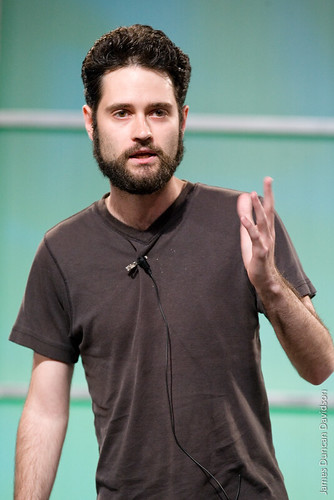Since my previous post was devoted to Java history and this interview with Martin Odersky recently came out, I decided to do one more short transcription related to Generics history.
"I am an academic, actually, I'm working at the university in Switzerland. ... A long time ago I was a Ph.D. student of Nicholas Wirth, so I am in the Modula 2 operand camp... But then I drifted more and more into functional programming community, I have a good friend named Phil Wadler who is very active in the community, so he sometimes told me ... "there is this new thing, it's gonna bury functional programming, it is called Java". I wanted to find out more and he said it has garbage collection, and it runs everywhere on the Web ..., so what are you gonna do against that?!
So ... we said we'll try to do a functional language on the Java platform, because the Java platform looked very exciting to us then (it was in 1995, so a long time ago). ... To find out more about what it is (I always learn best when I write a compiler) let's write a Java compiler. We had this second ever Java compiler out there after the old JavaC.
Then we said - if we want to do a language it should be Java compatible, and we wrote a language called Pizza, which added stuff from functional programming to Java. We experimented a little bit with that and then Sun came and said - we like what you did, in particular the Generics, we wanna do that. Then we had a project with Gilad Bracha at Sun and we did this GJ thing, which was the Generics thing.
The compiler for GJ eventually became the current JavaC compiler, Sun took that over because they decided that this compiler was more maintainable than the original. (Interviewer: "from JavaC 5 on...") From Java 1.3 already.
So the compiler was in 1.3, but the Generics were disabled. In fact, the Generics were at first not that much disabled, there was a secret switch that people found out about, so there was this stealthy movement of people using Generics already in 1998 when it first came out. And then Sun pulled the plug, they said - you can't do that, so you have to re-write your compiler so that it doesn't make any Generics available. So there was a special mutilation script in the compiler which would rip it off, so that people couldn't use it for a while, until it came back in Java 5."








